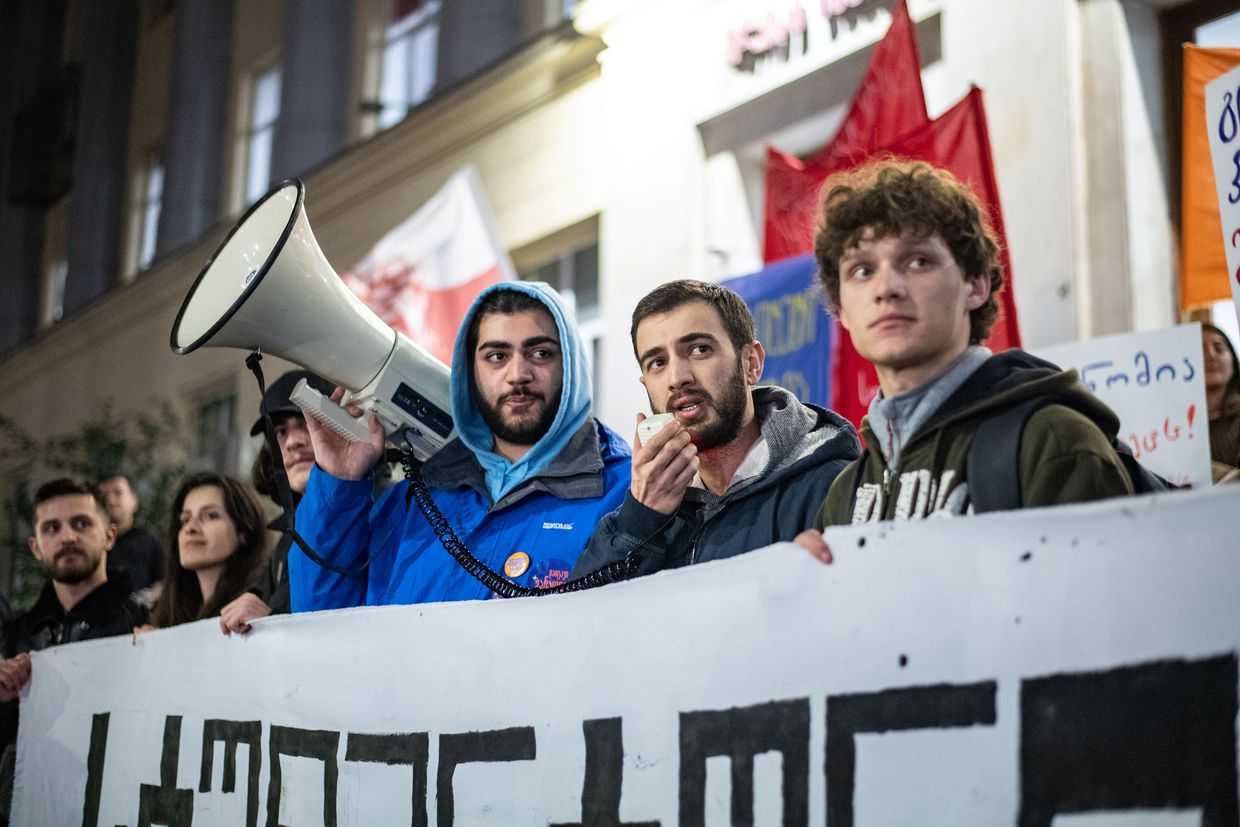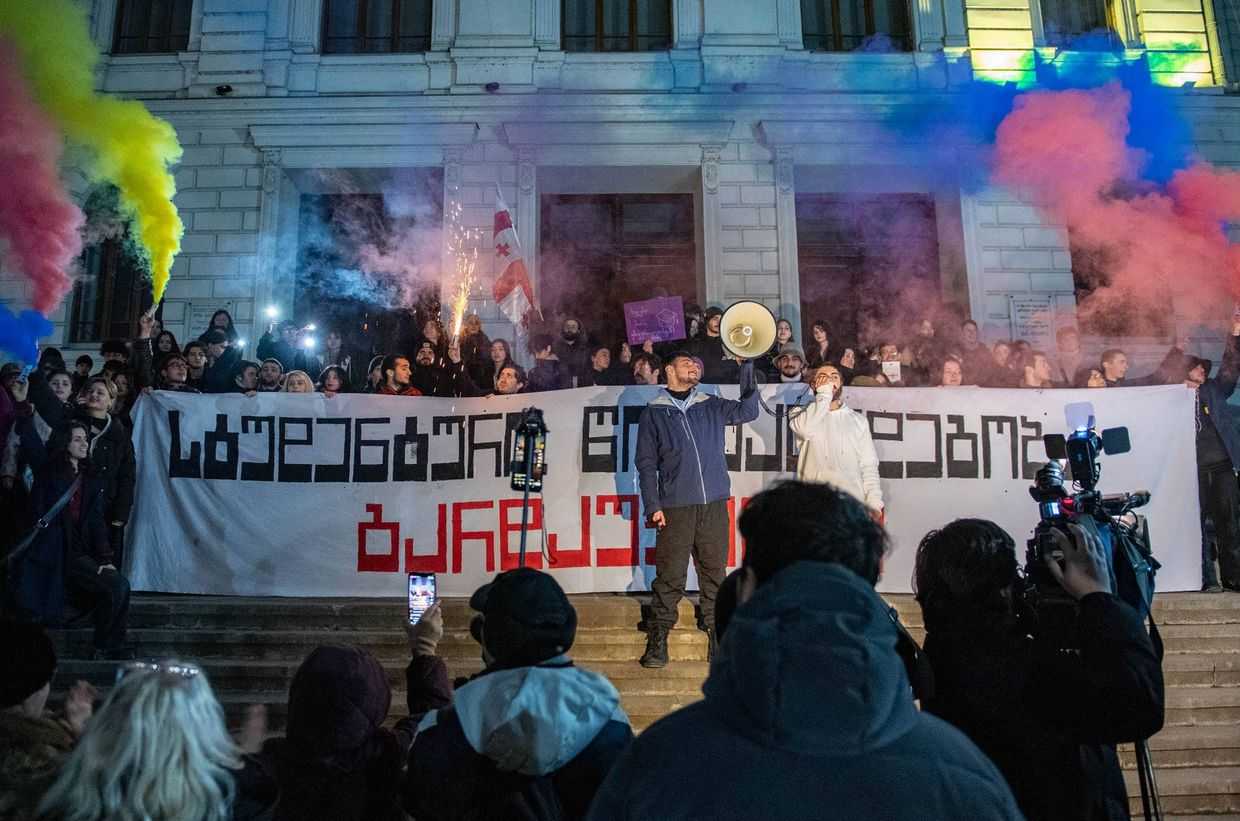
The authorities in South Ossetia are to reopen the checkpoints between South Ossetian and Georgian government-controlled areas for 10 days per month.
The change is the most significant relaxation of restrictions on movement put on ethnic Georgian residents of South Ossetia’s southeastern Akhalgori (Leningor) region in nearly three years.
On Thursday, South Ossetian government-run news agency Res reported that the Security Council had decided to allow residents of Akhalgori and Java (Dzau) districts to cross two checkpoints from the 20th to the 30th of every month.
Res also cited South Ossetian President Alan Gagloyev as saying they came to the decision after appeals from the local population.
Res reported that ‘since the state border crossing points had been closed for a long period’, the South Ossetian authorities would allow residents to use expired passes, which they must obtain to cross, until December.
Many residents of Akhalgori, which is predominantly ethnic Georgian, have been isolated from relatives and unable to access medical services or collect pensions since September 2019, after South Ossetian authorities halted movement to Georgia-controlled territory.
The decision to close the checkpoints followed a dispute over a forested buffer zone between South-Ossetia-controlled Tsnelisi (Uista) and the Georgian government-controlled village of Chorchana.
Former South Ossetian President Anatoly Bibilov several times indicated the policy was a means of pressuring the Georgian Government to remove a controversial checkpoint near Tsnelisi.
The Chorchana-Tsnelisi controversy also hit Bibilov domestically, as he was in the following years accused of proposing border changes ‘in detriment of South Ossetia’s territories’, something he vigorously disputed.
In a report released earlier this year, Tbilisi-based group the Democracy Research Institute described the lockdown of Akhalgori as a tool ‘to exert pressure on Tbilisi’ over the checkpoint issue, something that had ‘led to a humanitarian crisis’.
‘I’ll finally see my daughter’
While the authorities in Tskhinvali have previously relaxed the checkpoint closures several times, including allowing crossing one checkpoint ‘once every two months’ in 2020, the latest easing of the rules have been hailed by many ethnic Georgians in the region.
Akhalgori resident and activist Tamara Mearakishvili was among those to welcome the news.
While still restricted from leaving Akhalgori due to years-long criminal cases against her, Mearakishvili said she was looking forward to finally seeing her 25-year-old daughter, Anna.
‘I have not seen her for three years exactly!’, Mearakishvili told OC Media.
[Read more on OC Media: Tamara Mearakishvili: ‘If I’m found guilty, I will not run away’]
Mearakishvili said that the 10 days monthly and a permit to use expired passes would enable Akhalgori residents to make proper visits to Georgian-controlled territory. She also said that some Georgian IDPs in Tserovani, a settlement near Mtskheta, would now be able to travel to Akhalgori to receive their pensions or legally renew their eligibility for it.
Mearakishvili called the restriction on movement in recent years a ‘paper-mania’, bureaucratic red tape that endangered many residents’ health and even resulted in death due to inaccessibility of health services.
‘Freedom of movement so far has been possible only with a medical document. The medical report itself was not hard to get. Still, it had to go through various bureaucratic levels, including the local administration, the health ministry, and the president’s office’, she said.
Mearakishvili also expressed a hope that the Georgian authorities would now ensure that regular public transport was available to and from the checkpoints during the 10 days monthly it was open.
The crossing of the checkpoints was in the past, and is again expected to be permitted on foot only.
According to Mearakishvili, ‘paying ₾140 every month only to reach your destination’ would be a financial burden.
‘People were very concerned that they don’t have transport and constantly would need to ask someone or hire a taxi’.
OC Media has reached out to the Georgian authorities to ask if they planned to arrange transport to and from the checkpoints.
For ease of reading, we choose not to use qualifiers such as ‘de facto’, ‘unrecognised’, or ‘partially recognised’ when discussing institutions or political positions within Abkhazia, Nagorno-Karabakh, and South Ossetia. This does not imply a position on their status.









